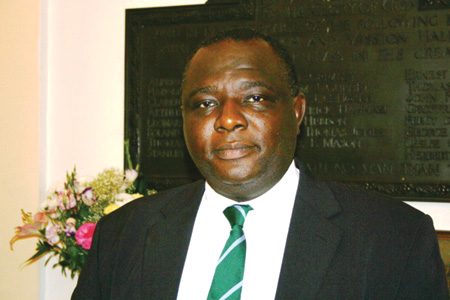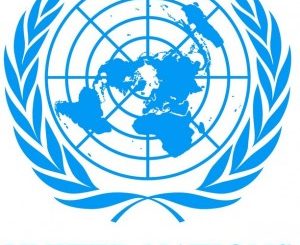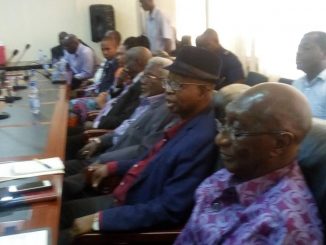
Titus Boye-Thompson, Communications Expert
It was Francis Fukuyama (1989) who predicted that the advance of neo-liberalism, the dominance of markets and the receding influence of governments in infrastructure and utilities such as gas, electricity and roads combined with the fall of the Berlin wall and the decline of communist influences in the dislodgement of Eastern European all point towards the end of history. He argued that evidently, globalization and its economic construct of neo-liberalism have become the dominant discourse and its globalist dispensation would be difficult to de-construct.
No doubt, the economic and social policies of Margaret Thatcher and Ronald Reagan together combined to present an inimitable force in the advance of a market dynamism. The result was a creeping predominance of globality – the concept that products are now created for a global market place and that the influence of entrepreneurs in the likes of Bill Gates, Steve Jobs, Rupert Murdoch etc., not to talk of the Dot Com giants and communications Czars now have combined interests and individual wealth that far surpass the budgets of governments in the developing World.
Britain in the European Union spelt the end of colonialist economic dispensations, the decline of what was termed the dependency theory and the unbalanced relationship that saw the former colonial nations act as providers of raw materials for the industrial advance of Western colonial powers. In the intervening period however, Europe had distorted the economic systems within Britain and the relationship with the Commonwealth suffered as a result. The dependency relationship was shifted to the European Union as a unitary market while France, Holland and Belgium joined the United Kingdom to push for a special relationship with their former colonies through the Lome II Accord with the African Caribbean and Pacific (ACP) ring of countries.
Sierra Leone finds itself in a conundrum with the BREXIT vote. On the one hand, the relationship Sierra Leone enjoys with the European Union is squarely predicated on the basis of its inclusion in the ACP as a commonwealth state. With this relationship being thus dependent on the UK acting as guarantor, would a BREXIT process mean that such states would be enjoined in the negotiations of residual benefits accruing to the UK and its sphere of influence? There is however a counter argument that EU development assistance is in tandem with the prerequisites of a global development / security nexus. That rich industrial states owe it to the World order to reduce global poverty by supporting the development aspirations of poorer nations is in itself a fundamental principle of international cooperation and global partnerships for development.
The implications for Sierra Leone in a negotiated settlement that sees the UK having to withdraw its sponsorship of nations of special interest may rightly translate to a reduction of support to Sierra Leone from the European Union. This eventuality may be subject also to a rationalization by the European Union of its development budget to secure a greater effectiveness due to the British exit. On the other hand, it would be the case that Sierra Leone may benefit in a more robust manner as UK development expenditure is also further rationalized, with its contribution that otherwise would have been routed via the EU now coming back to its internal funding streams to distribute? It is however more than likely that UK gains from reduced obligations to the EU would be used internally to shore up internal budgets and spending rounds, to reduce trade deficits and to increase spending on domestic health, education and social security budgets. The immediate effects of these financial rationalization would be difficult to discern in the short term since it is estimated that it would take up to seven years for a full and final withdrawal to take effect.
In the event, funding flows that have been agreed and pledged would have to be met, and unless Boris Johnson and Theresa May take a bullish approach to the divorce, all commitments from the UK are very likely to be met in full.
The UK exit would raise some very serious issues for its relationship with the Commonwealth generally. There is the prospect of a move towards Asia, with China increasingly engendering such a relationship in order to secure a major Western partner. The likes of Canada, New Zealand and Australia are major economic regional partners in their respective hemispheres, not to mention the growing influence of India, and South Africa within the BRICS nations. It is therefore likely that the UK may have to engage in a bi-partite round of negotiation as it leaves the EU and its need to engage more fully with the Commonwealth of nations as it rebuilds a long held relationship. Many in the UK would prefer a strengthening of the Commonwealth as a trading block and on that leverage, the UK would have a better chance to elicit preferential trade terms for its post-colonial partners. In that regard, Sierra Leone would again become a major player as suppliers of ores and precious metals to an emerging new World order of strategic relationships. The influence of the larger Commonwealth nations this time round may well secure greater and better trade benefits for the smaller nations as opposed to the neo-colonial era, decisions and trade relationships were unavoidably one sided.
The conundrum for Sierra Leone as a supplier economy can only be made clearer if it enhances its comparative advantage for agriculture and raw materials. Sierra Leone must restructure its agriculture through expanding the commercialization of the sector to engage larger multinational players and to expand on bio-fuels cash crops. That the new World order would impact on market prices for ores and minerals is a distinct possibility. Australia is a major minerals economy and it is likely that it would leverage its advantage on that sector to secure a better trade condition in a revitalized Commonwealth that is now emerging as a robust trading bloc.
In the event, Sierra Leone stands to gain from the BREXIT vote only if it secures the right modalities to establish itself as a veritable trading economy. The mortgage of the country’s minerals to third parties should be reviewed as from this point going forwards because in the not too distant future, the end of history is bound to be revisited and the dawn of a new economic order beckons.



